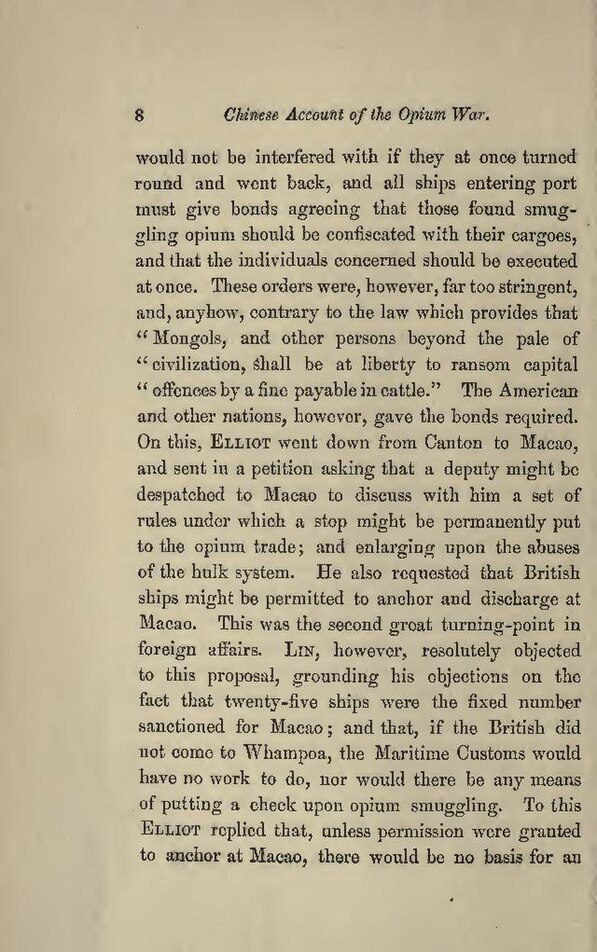would not be interfered with if they at once turned round and went back, and all ships entering port must give bonds agreeing that those found smuggling opium should be confiscated with their cargoes, and that the individuals concerned should be executed at once. These orders were, however, far too stringent, and, anyhow, contrary to the law which provides that "Mongols, and other persons beyond the pale of civilization, shall be at liberty to ransom capital offences by a fine payable in cattle." The American and other nations, however, gave the bonds required. On this, Elliot went down from Canton to Macao, and sent in a petition asking that a deputy might be despatched to Macao to discuss with him a set of rules under which a stop might be permanently put to the opium trade; and enlarging upon the abuses of the hulk system. He also requested that British ships might be permitted to anchor and discharge at Macao. This was the second groat turning-point in foreign affairs. Lin, however, resolutely objected to this proposal, grounding his objections on the fact that twenty-five ships were the fixed number sanctioned for Macao; and that, if the British did not come to Whampoa, the Maritime Customs would have no work to do, nor would there be any means of putting a check upon opium smuggling. To this Elliot replied that, unless permission were granted to anchor at Macao, there would be no basis for an
Page:Chinese account of the Opium war (IA chineseaccountof00parkrich).pdf/24
